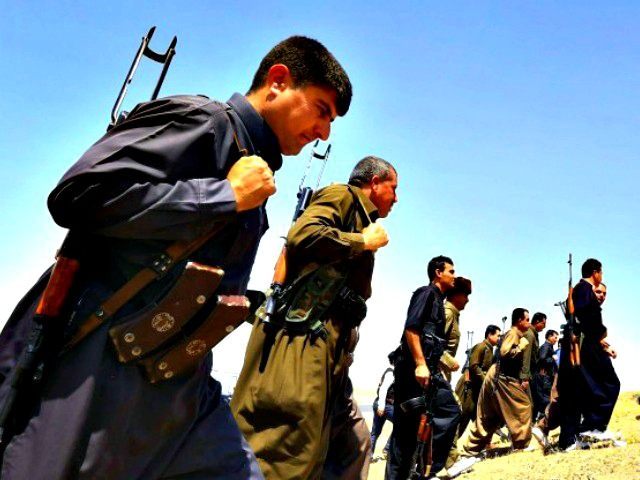WASHINGTON, D.C. — A Kurdistan Democratic Party (KDP) official told a panel at the Middle East Institute that Iraq’s Kurdistan Regional Government (KRG) is seeking to break away from Baghdad in an “amicable way,” adding that the independence process is ongoing.
KRG’s independence would be conducive to stability in the Middle East, argued Hemen Hawrami, a member of the KDP Leadership Council and the head of its foreign relations office.
“This [independence] is a process that is happening and it’s going to happen. The referendum will be held very soon, I mean in less than two years. It will be for all Iraqi Kurdistan citizens,” said Hawrami during a panel discussion at the Middle East Institute, Rudaw reports. “Frankly speaking, Iraq is broken.”
“The first capital we are going to talk with is Baghdad. Baghdad is important for us. We want to do it in an amicable way. We want to add to the stability of the area and Kurdistan is the anchor of stability,” he added. “It’s time for the world to realize that a failed system needs a review.”
Mr. Hawrami suggested that a new system based on socio-economic realities should replace the governance system currently in place in the Middle East, which he said has failed.
The new system can be used as the foundation for drawing a new map of the region, he explained, noting that Kurds will reach out to Baghdad for a peaceful divorce.
Mr. Hawrami called on the Obama administration to recognize the KRG as independent from Baghdad and acknowledge the actual redrawing of the region by the various communities in Iraq.
“The United States is an indispensable ally for us and we are not going to do anything without consultation,” he explained. “But for the United States, the fact is Iraq on the ground is now divided. So any policy to deny this reality and this fragmented Iraq is not helping the plans for more stability in the region.”
“In the Shiite areas, Shiites are fighting to draw their own borders, and we are fighting to defend our borders as well,” added the KDP diplomat. “So we have to collectively work with the Sunnis to protect their borders.”
The Obama administration is against directly arming and equipping the Kurds in their fight against the Islamic State (ISIS/ISIL), choosing to provide military assistance through Baghdad instead.
“When we provide arms to the Kurds we do it with the consent of the Iraqi government in order to indicate that we support the idea of a single Iraqi government in Baghdad, but we also want the Kurds in the fight and armed and that has not delayed our arming of the Kurds,” argued Defense Secretary Ashton Carter before a Senate Armed Services Committee hearing on Tuesday.
Some Kurdish officials have complained that Baghdad has slowed the delivery of U.S.-provided weapons to Kurdish forces.
Current law prohibits the U.S. government from sending weapons to autonomous regions within nations like Kurdistan.
The United States is only allowed to arm internationally recognized sovereign governments; therefore, the Kurds have to rely on Iraq’s central government to share equipment supplied by the U.S.
Efforts to change the law so that America is able to provide direct military assistance to the Kurds have failed in the Republican-led Congress.
Some Iraqi officials believe the Kurds will more forcefully push for independence once ISIS is defeated if they receive direct military assistance from the U.S., allegations that Mr. Hawrami denies.
“We have not carried out territorial expansion. It was [former Iraqi prime minister Nouri] Maliki’s army, as a friend of mine described, that peacefully handed over territories to ISIS. Maliki’s army surrendered to ISIS and they withdraw from all those territories, if we were not there, ISIS would have taken Kirkuk and other areas,” he said, later asking, “If we leave those areas, who is going to fill in? ISIS?”
“Fighting ISIS does not mean that Kurdistan is fighting for independence. They are two different issues,” Hawrami added.
Although Kurds have been allowed to participate in the current Iraqi government, there is no power-sharing in Baghdad, said the KDP official, pointing out as example the marginal Kurdish and Sunni representation in Iraq’s Shiite-controlled defense ministry.
“Even If ISIS could be defeated in the longer term, and it can be defeated, that will not be the end of terrorism in the Middle East,” Hawrami maintained. “ISIS is a symptom of a bigger illness in the Middle East. The illness is the failed system that we have– that the borders of the Middle East don’t reflect realities on the ground- do not reflect the wish and will of the people.”

COMMENTS
Please let us know if you're having issues with commenting.